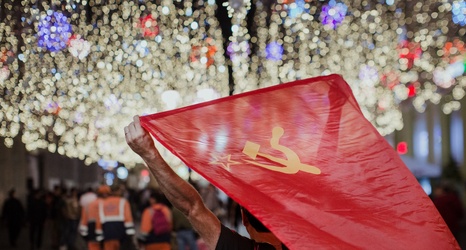MOSCOW — More than anything, Boris Belenkin was excited by the prospect of finally being able to get his hands on some good, quality chewing gum.
As the 1980 Summer Olympics approached, the Soviet authorities wanted to make sure the tens of thousands of international visitors they were expecting got the best possible impression of Moscow, the host city.
They cleared out undesirable elements — pickpockets, drunks, prostitutes — and children, to ensure they would not be corrupted by exposure to capitalists, and started work to renovate some of the city’s run-down hotels.
Most exciting for ordinary Russians like Belenkin, officials promised to fill grocery stores with precious Western luxuries, an attempt to prove to the visitors that life was just as good, if not better, behind the Iron Curtain.
